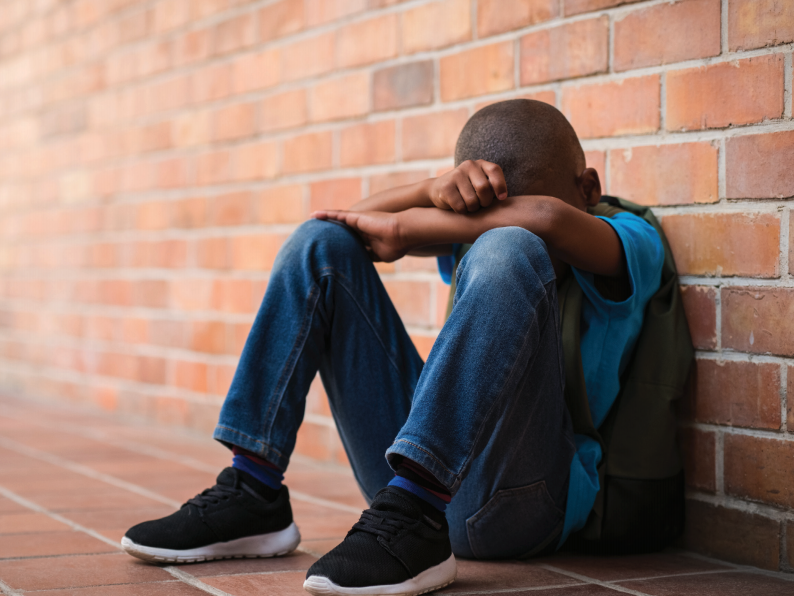
When Holidays Aren’t Happy for Everyone
This post is written by guest blogger, Maria Collins, vice president of the New York Life Foundation
For many, the holiday season can be a wonderful time of year filled with celebrations and family gatherings, time spent reminiscing about all the joy-filled moments that took place over the past year and all the wonderful things to come in the new year. For others, the holidays may be a difficult time spent without their loved ones for the first time or they can be a trigger many years after their loved one has died.
Connecting with and supporting grieving children all year is important, but did you know there is a national day, Children’s Grief Awareness Day, that helps us be more aware of grieving children? I first learned about Children’s Grief Awareness Day in my role as the Vice President of the New York Life Foundation. Children’s Grief Awareness Day is the third Thursday in November; which is significant because it is recognized right before we kick off the holiday season. This day provides an opportunity to bring awareness about the “forgotten” mourners, children who have lost a loved one.
There are more children affected than you may realize. One in 14 children will experience the death of a parent or sibling before they reach the age of 18. Over 4.9 million youth are bereaved, and the number more than doubles by age 25, to 12.8 million, according to data from the Childhood Bereavement Estimation Model.
Children’s Grief Awareness Day is our opportunity to connect with children and teens that have lost a loved one. As adults, we may not have the right words all the time, but simple actions can open the door to important conversations. New York Life and its Foundation have committed to champion the issue of childhood bereavement by providing grants for research, direct service and free resources to support them so that no child grieves alone.
Communicating with a bereaved child can be intimidating. In my role managing our childhood bereavement portfolio, I’ve learned some good tips from many of our wonderful grantee partners. Here are a few:
- Be courageous. Don’t shy away from conversation with a grieving child because you may not have the right answers.
- Ask about their loved one. Give them an opportunity to share and remember their loved one
- Be direct and honest.
- Be age appropriate.
- Be a good listener.
- Be there but let them take the lead. There is no right or wrong way to grieve, so recognize their individual way of dealing with their loss and support them.
- It is okay to have fun and laugh with them; and;
- Be inclusive. As a class parent, I am very mindful that all the children feel like they can engage in the classroom activities. Activities should be inclusive and offer alternatives. If students are making “gifts” for their loved ones, invite the bereaved student to make something in honor of their loved one.
Here are a few helpful resources from some of our partners that can help you prepare for your conversation with a grieving child:
- NAGC in partnership with New York Life Foundation Hero Toolkit
- NAGC Holiday aToolkit
- The National Center for School Crisis and Bereavement on Grief over the Holidays.
- Coalition to Support Grieving Students
- National Bereavement Resource Guide: State by State Bereavement Listing
- Alliance for Young Artists and Writers: New York Life Award
- Using Books to Support Students Through Grief, Loss and Healing
- Bookmark with Tips for Teachers
- Grief, Loss, and Healing Section of the First Book Marketplace
Maria Collins is the Vice President of the New York Life Foundation where she leads the Foundation’s work on behalf of grieving children and their families. As the largest corporate funder of the childhood bereavement field, The New York Life Foundation strives to make a difference by funding direct service providers to help grieving children today, as well as scholarly research that will have a long-term impact in the field.
